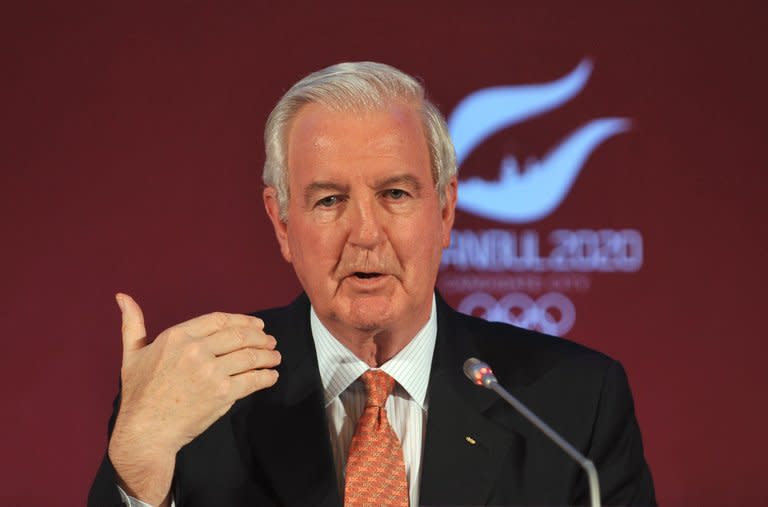IOC nominate Reedie to be head of WADA

Craig Reedie, a driving force behind London's successful hosting of the 2012 Olympic Games, is all but assured of being the next president of the World Anti-Doping Agency (WADA) after being nominated by the International Olympic Committee (IOC) Executive Board on Friday. The 72-year-old Scot, who was also a leading light in London's successful candidacy to host the 2012 Games, saw off the challenges of former IOC Medical Director Patrick Schamasch and American hurdling great Ed Moses. Reedie, who was elected an IOC vice-president prior to the London Games, will replace Australian John Fahey, who steps down after six years in charge in Johannesburg in November. Reedie will be the third WADA president after fellow IOC member Dick Pound and Fahey, and is in line with the original agreement that the WADA president alternates between being nominated by the IOC and then the next one by governments. "Congratulations? I hope that's the right word. I think it's rather daunting after the doping stories of the past eight weeks," said Reedie, referring to high profile sprinters Tyson Gay and Asafa Powell, who failed dope tests. "This is obviously the first step and then it has to be confirmed at the WADA meeting in November. Going on their past habits I believe they will say yes. "This is a new part of my life. I will of course speak closely with the new president of the IOC (incumbent Jacques Rogge steps down on September 10), I do look forward to continuing as IOC vice-president until my term ends and to get both organisations working together as closely as possible." Reedie, an accomplished badminton player in his youth who lobbied successfully for it to become an Olympic sport, will face several challenges when he is officially elected and takes up the post on January 1 2014. Fahey, a former Australian Minister of Finance, warned in June that lack of money was hampering the fight against doping in sport, saying a budget of $28 million (21 million euros, £18 million) was insufficient. However, Reedie said that one had to be realistic about a shortage of funds. "These are tough financial times and turning round to governments who are implementing substantial austerity measures and asking for more money? It would be nice to receive more funds but you have to be realistic," he said. Reedie, who was knighted by Queen Elizabeth II for his role in the organising of the Olympic Games, said that there was no simple answer to erasing doping from sport. "I don't think there is one panacea," he said. "Governments and sports bodies have to be smarter and more successful. It's not difficult to do. One example of being smarter is last year's Olympic Games where the IOC, the local anti-doping agency and WADA joined forces to do pre-Games testing. "As a result several athletes did not compete at the Games. However, it is easier for the IOC to organise as they have fixed dates for the Games but for international federations to organise that every day is time consuming and costly." Reedie said he is in favour of the four-year ban for athletes who fail dope tests. Athletics governing body the International Association of Athletics Federations (IAAF) announced this week they favour similar bans, but with a proviso cases deemed less serious could bring shorter suspensions. "We are talking about serious doping offences, not someone taking an aspirin," he said. "There has to be a sense of proportion. This is up for discussion and should be in the consultation paper ahead of the new WADA code being adopted."


